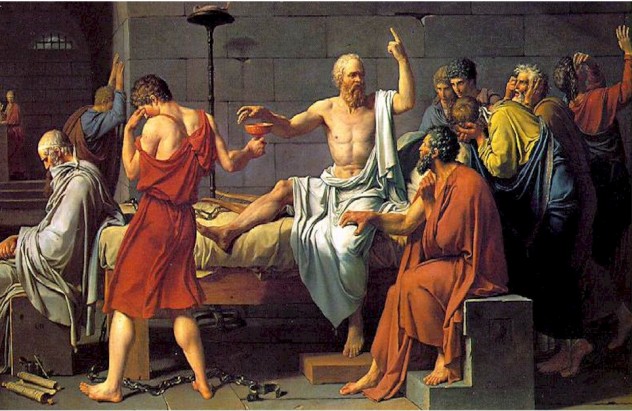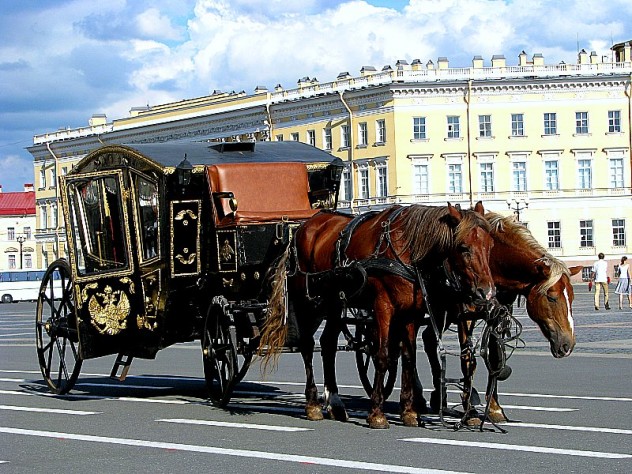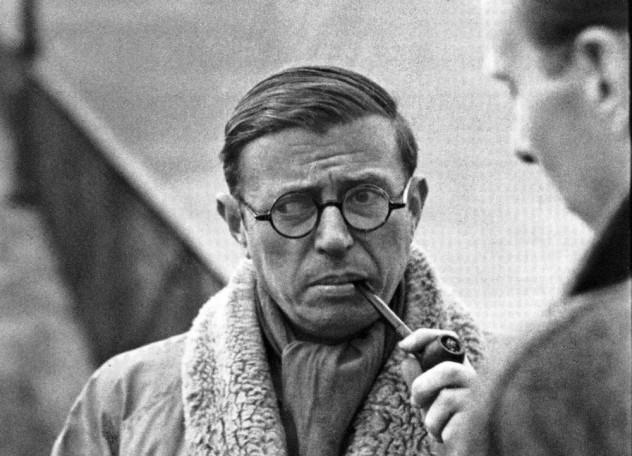 History
History  History
History  Health
Health 10 Everyday Activities That Secretly Alter Consciousness
 History
History Top 10 Historical Disasters Caused by Someone Calling in Sick
 Animals
Animals 10 New Shark Secrets That Recently Dropped
 Movies and TV
Movies and TV 10 Forgotten Realities of Early Live Television Broadcasts
 Technology
Technology 10 Stopgap Technologies That Became Industry Standards
 Weird Stuff
Weird Stuff 10 Wild Facts About Taxidermy That You Probably Didn’t Know
 Travel
Travel 10 Beautiful Travel Destinations (That Will Kill You)
 Miscellaneous
Miscellaneous 10 Modern Marriage Rituals Born from Corporate Branding
 Weird Stuff
Weird Stuff Ten Bizarre Visions of 2026 from Fiction
 History
History 10 “Modern” Problems with Surprising Historical Analogs
 Health
Health 10 Everyday Activities That Secretly Alter Consciousness
 History
History Top 10 Historical Disasters Caused by Someone Calling in Sick
Who's Behind Listverse?

Jamie Frater
Head Editor
Jamie founded Listverse due to an insatiable desire to share fascinating, obscure, and bizarre facts. He has been a guest speaker on numerous national radio and television stations and is a five time published author.
More About Us Animals
Animals 10 New Shark Secrets That Recently Dropped
 Movies and TV
Movies and TV 10 Forgotten Realities of Early Live Television Broadcasts
 Technology
Technology 10 Stopgap Technologies That Became Industry Standards
 Weird Stuff
Weird Stuff 10 Wild Facts About Taxidermy That You Probably Didn’t Know
 Travel
Travel 10 Beautiful Travel Destinations (That Will Kill You)
 Miscellaneous
Miscellaneous 10 Modern Marriage Rituals Born from Corporate Branding
 Weird Stuff
Weird Stuff Ten Bizarre Visions of 2026 from Fiction
10 Craziest Things Done By Philosophers
When we think “philosopher,” a certain image comes to mind—most often a wise, calm person, who is knowledgeable and mature. You wouldn’t necessarily imagine someone being cheeky with the people about to kill them or urinating on random bystanders. Nevertheless, those were some of philosophy’s greatest minds, and some did even crazier things.
10Descartes Slept In Ovens

Rene Descartes’s “I think, therefore I am” is possibly the most quoted idea in all of philosophy. His ideas are said to be the grounding for most Western philosophy, and he may have come up with many of those ideas in an oven. Exactly when and where is up for debate, but according to Descartes himself, it did happen.
It wasn’t an oven as you might imagine, but a stone room where a fire always burned. Temperatures were raised when it was needed for cooking, but it was kept relatively low during other times of the day. They certainly weren’t designed for people, but that didn’t stop Descartes from sleeping in one and having dreams that he eventually turned into the grounding of his life’s work.
9 Chicken Or Man?

Diogenes was from ancient Greece and known for his controversial stunts. For example, he once plucked a chicken and hand-delivered it to Plato’s philosophy school. But it wasn’t on an insane whim—he had a point to make. When Plato publicly defined man as “a featherless biped,” Diogenes disagreed, believing man was more complex. To argue his point, he obtained a chicken, plucked it, and presented it to Plato’s academy as a man. Annoyed, but not to be outdone, Plato added “with broad flat nails” to his definition.
8 Public Masturbation

Diogenes famously lived in a small barrel in public, so where did he go when he needed privacy? Apparently he didn’t need privacy at all. He is said to have frequently masturbated in his barrel, well within the visibility of passersby. When those who were offended confronted him, he simply said that he wished it was “as easy to relieve hunger by rubbing an empty stomach.”
In further attempts of challenging society’s understanding of why we feel shame, he’s also believed to have urinated on people who annoyed him and defecated in public theaters. It turns out that ancient Greece drew a thin line between “great philosopher” and “offensive bum.”
7 The Government Owes Socrates

Socrates was known as the “gadfly of Athens” because he was said to have annoyed Athenians (just as a gadfly annoys a horse) with his constant questioning of the societal norms they took for granted. His questioning, which was considered “corrupting the young” annoyed Athenians so much that it eventually lead to Socrates being put on trial and sentenced to death.
According to Plato’s Apology, Socrates was asked what he deemed an acceptable punishment for his actions. His response? Among other things, he should receive “free maintenance by the state.” In modern terms, Socrates claimed the government should give him food and wages because he believed his questioning was a service to them. Unsurprisingly, his rebellious attitude didn’t get him out of the death penalty.
6 Bestiality: Not So Bad?

Peter Singer is an Australian philosopher who specializes in morals and is known predominantly for his ability to propose ideas that result in widespread protests. One of those ideas was that bestiality isn’t all that bad.
On a live Australian television show, Peter stated that he opposed any act in which an animal is harmed, but that there can be situations where both parties are pleased. He then gave an example: that a woman receiving oral sex from a dog might not be so horrible. The psychologists and politicians on the panel with him did not agree.
5 Nietzsche Hugged A Horse And Collapsed

Although many of his ideas aren’t well known, the Nietzsche’s name is definitely recognizable. Many know he was a philosopher of sorts, but not many know the details of his life. On January 3, 1889, Nietzsche left the place he was staying and saw a horse being whipped by a cabman. He reportedly ran to protect the horse, threw his arms around its neck, and began to cry. He then collapsed in the street. Believe it or not, his life went downhill from there.
4 Sartre Hid From A Nobel Prize

Jean-Paul Charles Aymard Sartre was an existentialist and political philosopher in the ’60s and ’70s. Some of his work was so good that he was awarded the Nobel Prize in Literature in 1964. The only problem was that he didn’t want it.
He claimed that winning the award would associate him with the Nobel committee forever. The press was very interested in someone turning down a Nobel Prize, but their attempts to contact Sartre went unanswered. Sartre hid in his sister-in-law’s apartment until they all went away.
3 Alexinus’s Failed School

Alexinus was an ancient Greek philosopher you’ve probably never heard of—and for good reason. Alexinus thought he was good enough to start his own philosophy school, and he moved all the way from Elis to Olympia to do so.
When asked why he made the move, he said it was because he wanted the school to be called the “Olympian,” and that wouldn’t make sense in Elis. Unfortunately, the school was not prepared, ran out of provisions quickly after students arrived, and wasn’t cleaned. The students decided the place was dirty and left, leaving Alexinus with one servant.
2 Demonax Starved Himself

Despite having the most evil name of all time, Demonax was a popular philosopher and celebrity figure. One thing that earned him that admiration was his love of solving disputes. According to a biography of his life, “he was fond of playing peace-maker between brothers at variance, or presiding over the restoration of marital harmony.” So not only was he willing to use his ideals to solve the problems of squabbling couples, he did it for free because he enjoyed it.
When he got so old that he thought he couldn’t take care of himself, he just stopped eating until he died. He was nearly 100 at the time.
1 An Expert On Children Abandoned His Own

Jean-Jacques Rousseau was a Genevan philosopher known for his thinking on politics and sociology. Early in his life, Rousseau fathered five children and abandoned all of them to a home. He did this because abandoning children and sexual boasting was in fashion among his social circles, and men who had abandoned the most children were highly applauded.
Such despicable behavior isn’t quite what one would expect from a theorist on education and child-rearing, but that didn’t stop Rousseau from becoming one. His past didn’t escape the eye of rival philosophers—such as Voltaire—and he was severely criticized for being a hypocrite.
Scott friggin tweets.








